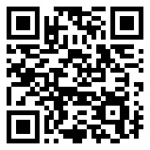The biggest challenge I’ve had on the “spiritual” path, or the journey of discovering if there is more to us than what is externally apparent, is sorting what is true and truly valuable in this sea of teachers, teachings, spiritual circles and schools of thoughts. There are a lot of people claiming a lot of things. With not much personal experience, it is really hard to not only try make sense of it all, but to separate fact from fiction, and differentiate those who are telling the truth (as they understand it), from those who are confusing the truth (because they misunderstand it), and from those who are simply selling you bullshit.
This actually occurs on a wide range of the spectrum of claims, and even though science very efficiently addresses a large segment of it, by systematically finding out what is true in the objective world and how it works, it mostly leaves out (so far) a good part of the internal world of subjective experience and our relationship with the world, as well as some philosophical questions (whether those can be answered or not).
 But on this part of the spectrum, which you find spirituality in it’s various forms, I’ve encountered so much…stuff, that keeps pushing me to throw away the whole damn thing. And yet there seems to be something here, something more to this world and our striking conscious awareness of it. Perhaps that is just my wishful thinking and desire for meaning but for better or worse I do believe there is a “diamond in this dunghill” as Sam Harris puts it. But I believe that out of fear of throwing out the baby with the bathwater, we left the bathtub full, and the water is so murky, I can’t even see the baby. If we don’t want to throw away the baby with the bathwater, I think its it’s time to drain the bathtub.
But on this part of the spectrum, which you find spirituality in it’s various forms, I’ve encountered so much…stuff, that keeps pushing me to throw away the whole damn thing. And yet there seems to be something here, something more to this world and our striking conscious awareness of it. Perhaps that is just my wishful thinking and desire for meaning but for better or worse I do believe there is a “diamond in this dunghill” as Sam Harris puts it. But I believe that out of fear of throwing out the baby with the bathwater, we left the bathtub full, and the water is so murky, I can’t even see the baby. If we don’t want to throw away the baby with the bathwater, I think its it’s time to drain the bathtub.
As a kid I was encouraged to believe in the power of the mind. I was told that if I really really believed it, I could fly. I was actually young enough to believe that, but fly I could not. And my love of science eventually turned me into a materialist. But the lure of magical powers apparently remained dormant for years waiting for its moment to rise again. As an adult it sprang back to life in the form of the “creating your own reality” mentality when it was presented in one of my favorite languages, science, in What The Bleep Do We Know. Steeped in cutting edge bizarre science I did not truly understand, it was hard not to fall for. It came at a time where I wanted life to be more than just material stuff bumping into itself.
Lucky for me I was eventually able to notice that this simply did not match my experience of reality (I’m not saying that positive thinking isn’t useful by the way). I left a mental door open for all this to be possibly true, but concluded that if it is, it should be possible to conclusively prove it somehow, and that was no where to be found.
But by this point, the new age circles of What The Bleep and The Secret had introduced me to the larger scope of spirituality and it wasn’t long before I came across Meditation, the concept of Enlightenment and Buddhism as a (not too religious) philosophy and practice. There was a strong case made that somewhere in here there is something very valuable and worth investigating.
I don’t really know what Enlightenment is, but a genuine transformation of consciousness that brings about true internal well being started to seem real and possible through meditation and a contemplative practice. The more I dug into this subject the more convinced I became that this is a real, achievable goal. At least I thought it would be worth the purported effort to find out if that is so.
No matter where I looked I found conflicting stories, theories and beliefs. I was told to look within and find out the truth for myself and that nothing should be taken on faith, but at the same time I was continually asked to believe a whole slew of things that didn’t make sense. It was never clean and straightforward. It appears that buddhism and the practice of meditation got mixed with a fair amount of new age thinking in the west, and formed new hybrid forms of spirituality. The fascinating thing is that each group I came across seemed to possess two or more of the slew of buffet items of beliefs.
To me (and it might just be my particular view) it looks like a pyramid where at the bottom there are a lot of people and groups that believe a ton of stuff like astrology, homeopathy, energy healing, ghosts, angels, demons, entities, heaven realms, hell realms, astral realms (and all sorts of other realms), out of body experiences, psychic powers (telepathy, clairvoyance etc’), reincarnation/rebirth and karma. Higher up in this pyramid there are smaller numbers of groups and people who believe only in things like healing, psychic powers, rebirth and karma. Slightly higher still, fewer who just believe in karma and rebirth. Those last two seem the most persistent all the way up to the very top where the remaining few (yet a growing number) do not believe in karma and rebirth, and all that remains is their experience/belief in the transformative capacity of meditation and some form of enlightenment or development of consciousness.
Now it does not escape me that I don’t actually know, and only believe, that meditation itself can lead to an enlightened state or some transformation of consciousness. I do not give these claims about meditation a special pass and I hold the reminder that I may some day conclude that it is nonsense as well, or not really find out one way or another. Although there is a lot more evidence to support such a claim and scientific research into meditation does already show that it does something(s), very valuable things, which contributes to the claims of some meditation teachers. But until someone builds an enlightenment machine, the validation of this remains something that one has to truly investigate for oneself.
This point Sam harris illustrates beautifully in The Problem with Atheism:
“…the problem with a contemplative claim of this sort is that you can’t borrow someone else’s contemplative tools to test it. The problem is that to test such a claim…we have to build our own contemplative tools. Imagine where astronomy would be if everyone had to build his own telescope before he could even begin to see if astronomy was a legitimate enterprise. It wouldn’t make the sky any less worthy of investigation, but it would make it immensely more difficult for us to establish astronomy as a science.
To judge the empirical claims of contemplatives, you have to build your own telescope.”
I don’t fully trust any claim of anyone, but when you send a skeptic like Sam Harris and he comes back confirming that at least the sense of self is a sort of illusion that disappears (even for a moment) upon closer inspection and that this is an extremely valuable shift in perspective, my fear of spending (wasting) the required time and effort to build my own telescope diminishes.
But here is where it gets back to magical beliefs. In Waking Up Sam claims that no metaphysical truths are revealed in altered states of consciousness, be they from meditation or psychedelics. Any such metaphysical notions are simply misinterpretations of those experiences. This can occur due to lack of skepticism, clear thinking or simply projection of prior beliefs. Ken Wilber points out that any mystical experiences will be interpreted by a person’s level of development and current belief structure. This is perhaps why near death experiences seem to produce culturally contextual visions and encounters.
A great example of this is Sleep Paralysis, a phenomena where you awake from sleep but remain in paralysis 1. This is often accompanied by a terror filled hallucinations or sense that someone is either sitting on your chest or is present in the room. This took culturally contextual forms at various times in history. People saw demons in eras where those were the common folklore, witches during the witch trials era and aliens in the modern era. Nowadays few people still believe you are actually being visited or held down by any of these entities especially once we understood better this psychophysical phenomena.
I started wondering if some of the beliefs that come along with buddhism and are held by even extremely rational people, just stuck around from a time where an understanding of life was vastly different and, in scientific terms, far less advanced. But there are those who claim that these notions are validated in deep experiences of meditative states and higher states of consciousness. There are those who claim that psychic phenomena do manifest on the path to enlightenment, and they seem pretty damn convinced. None of those beliefs are held as tightly as karma and rebirth, it appears.
And here is the kicker: I don’t know what is true. It doesn’t seem completely impossible that some of these things might be true. But how can I judge any of these claims? Some cases I think are simpler than others. If you are making empirical claims about the objective world you should be able to prove them empirically, but no one has done this to a satisfying degree. Some experiments in psychic phenomena supposedly produced “statistically significant” results, but this hinges on how well these experiments have been done, how well were they analyzed and how was the data interpreted. How convenient that no one has won James Randi’s million dollar challenge prize…
For the longest time I was convinced that if I believe the claims about the benefits of meditation and it’s potential for transformation, I have to also believe (or suspend my disbelief about) the other claims (at the very minimum karma and rebirth). But at some point my cognitive dissonance got so off the charts that I could no longer do so, and remain sane. I had to bring equilibrium to my view of how the world works. I’ll be happy to be proven wrong later if I find the case to be different. It would be awesome to have psychic powers, believe me i’m on board for that.
So I started turning to those who taught or promoted meditation but did not hold these beliefs, not even karma and rebirth. I was a little surprised at how often I was told that whether those things are true or not is not important at all, and that I should simply focus on my meditation practice. I understand the argument that the practice itself should be the top priority and that the rest can be distractions, but the discouragement of trying to learn what is true and what is not smelled too familiar. It is reminiscent of the “don’t ask questions” mentality i’ve encountered throughout my life. What’s wrong in wanting to know the truth? I’m not even talking about some ultimate Truth with a capital T here (that’s a whole other discussion but let’s just say I can see the argument why that could be a futile endeavor).
In fact I think that if meditation can improve people’s lives in small ways, let alone if it can be truly transformative, cleaning up the maps will be crucial to not only making it more effective, but to making such practices more available and widespread. I am not necessarily advocating for detaching meditation from any and all concepts that got imported from Buddhism (although that might be desirable). If those who cling to Buddhism insist that meditation without a conceptual framework is lacking, problematic or even dangerous, then all the more reasons to drain the water and update the maps. We are carrying some very old maps here and all I see is folks revising their perception of territory to fit their maps instead of the other way around.
Whether it would be a good thing or not, I do wonder what a belief-free teaching of meditation and transformation of consciousness, removed even from Buddhist, Spiritual or Mystical language, would look like. I’ve yet to see a better case made for this than in Sam Harris’ article, Killing The Buddha:
“If the methodology of Buddhism (ethical precepts and meditation) uncovers genuine truths about the mind and the phenomenal world—truths like emptiness, selflessness, and impermanence—these truths are not in the least “Buddhist.” No doubt, most serious practitioners of meditation realize this, but most Buddhists do not. Consequently, even if a person is aware of the timeless and noncontingent nature of the meditative insights described in the Buddhist literature, his identity as a Buddhist will tend to confuse the matter for others.
There is a reason that we don’t talk about “Christian physics” or “Muslim algebra,” though the Christians invented physics as we know it, and the Muslims invented algebra. Today, anyone who emphasizes the Christian roots of physics or the Muslim roots of algebra would stand convicted of not understanding these disciplines at all. In the same way, once we develop a scientific account of the contemplative path, it will utterly transcend its religious associations. Once such a conceptual revolution has taken place, speaking of “Buddhist” meditation will be synonymous with a failure to assimilate the changes that have occurred in our understanding of the human mind.”
Now whether some additional buddhist concepts should still be taught alongside meditation or not (cultivating compassion is a good example, although again, not an exclusively buddhist attribute), I think getting rid of some mystical and metaphysical baggage is very important.
Yes, I am also driven by sheer curiosity to know how the world really works. But that drive is what gave us the staggering amount of scientific knowledge we have today. I would argue that saying “forget what some spiritual teachers claim, just focus on your experience and your practice” is leaving the door open for those who are at best confused and at worst fraudulent charlatans, to rip off and mislead a vast amount of people. In some sense this is not unlike letting religious folk teach their kids that god created the world in 6 days about 6,000 years ago. We don’t mind it until they manage to remove evolution from science books that are used all over the united states. Should we let children grow up believing that they’ll spend an eternity in hell if they don’t follow the the word of god? If not, then why should we let the belief in karma keep some in fear of living more freely and the belief in reincarnation keep some focused on the next life or their previous lives, instead of the one they’ve got.
So these beliefs range from the benign to the harmful, and those who teach them range from the unfortunately misguided to the greedy charlatans. We need to encourage more students to be skeptical, and we need more teachers who are willing to question some all too accepted ancient myths and beliefs.
I’m encouraged when I see teachers like Shinzen Young actively trying to take the mist out of mysticism. A marvelous and pragmatic example of maintaining what’s (personally) verifiable and reproducible, while discarding the absurd and the unuseful is Kenneth Folk in Watering Down The Dharma:
“I offer one possible interpretation of the Four Paths model. This interpretation is based on the Pali Canon and commentaries, rooted in observed reality, and nurtured by pragmatism. Implausible claims are sooner discarded than taken at face value. But even after discarding the implausible, the unprovable, and the downright silly, what is left is too good to ignore; enlightenment is much more than a myth, it happens to real people in our own time, and it can be systematically developed through known practices.”
At the very least for myself I intend to traverse the territory with as few assumption as I can while creating as honest and accurate a map as I can come up with. This means using existing maps but not taking the map’s legend as gospel. Keeping the practice itself as the top priority does not have to come at the expense of finding out what’s true and what’s not, and I would argue it is imperative we do both if we are to leave better maps to those who will follow in our footsteps.
This paralysis is a natural occurrence called REM atonia, which prevents the body from moving during REM sleep and acting out your dreams. This is only a problem if you remain in this state but are awake at the same time.↩



